Random Breath Tests in Australia
This random breath test guide has been compiled to provide you with an understanding of the various Laws and Acts utilised throughout Australia when it comes to law enforcement breathalyser breath testing. We have tried to summarise and compile the advice for each state but have also called out some unique differences when applicable. The information contained within this guide should not be considered legal advice and you should always consult with a legal representative when needed.
Table of Contents
- What is a random breath test?
- What is blood alcohol content (BAC)?
- What is the Australian Blood Alcohol Limit?
- How much alcohol is in a standard drink?
- When are police allowed to breath test me?
- What information am I required to give during a random breath test?
- Can I refuse to take a breath test?
- What are the penalties if I refuse to take a breath test?
- How many breath tests can I be requested to take?
- If I blow a negative reading, can a police officer request a further test?
- Can a police officer force me to the police station for a sample?
- Does the police officer need to show me the breathalyser results?
- What are the drink driving penalties if I blow a positive reading?
- What is an Alcohol Interlock Device?
- When I get pulled over, I am going to quickly swap seats with a passenger so I don’t get caught.
- If I am just sitting in my car on the side of the road, can police breath test me?
- Can a police officer breath test me if I am at hospital receiving treatment?
- When are police not allowed to breath test me?
- Can I challenge my breath test result?
- I’ve heard I can apply for a Work Licence, what is that?
- What are the different legislations in each state?
LOOKING TO BUY A PERSONAL BREATHALYSER?
Check out some of our latest model best sellers.
What is a random breath test?
Random breath testing was first introduced into Australia in 1985. As noted in various Acts and Regulations a “breath test means a test to obtain an indication of the concentration of alcohol in a person’s breath using a device approved under a regulation.“
What is blood alcohol content (BAC)?
Random breath testing measures your blood alcohol content (BAC) to check if it is below or above the Australian Blood Alcohol Limit. Your blood alcohol content is basically a measure for the amount of alcohol in your bloodstream. It is measured as mass per volume, for example a blood alcohol content of 0.06% means 0.6% (permille) or 0.06 grams of alcohol per 100 grams of individual’s blood.
The higher your BAC the higher your impairment. For example, once your blood alcohol content reaches 0.05% you are likely to suffer slurred speech, memory impairment, along with attention and coordination impairment.
There are many factors that can influence your blood alcohol content including:
What is the Australian Blood Alcohol Limit?
The Australian Blood Alcohol Limit for all states is 0.05 for drivers who hold a full licence.
Standard drink measures can be used as a rough guide to understand safe drinking levels. Even though each of the drinks seen below are different sizes, every one of them has approx. 10 grams of alcohol due to the differences in the strength of the alcohol used.
As a rough guide, if you keep to one standard drink an hour you should be able to remain under the legal blood alcohol limit.
How much alcohol is in a standard drink?
Don’t judge a drink by its size. Different drinks have different alcohol contents and as a general rule:
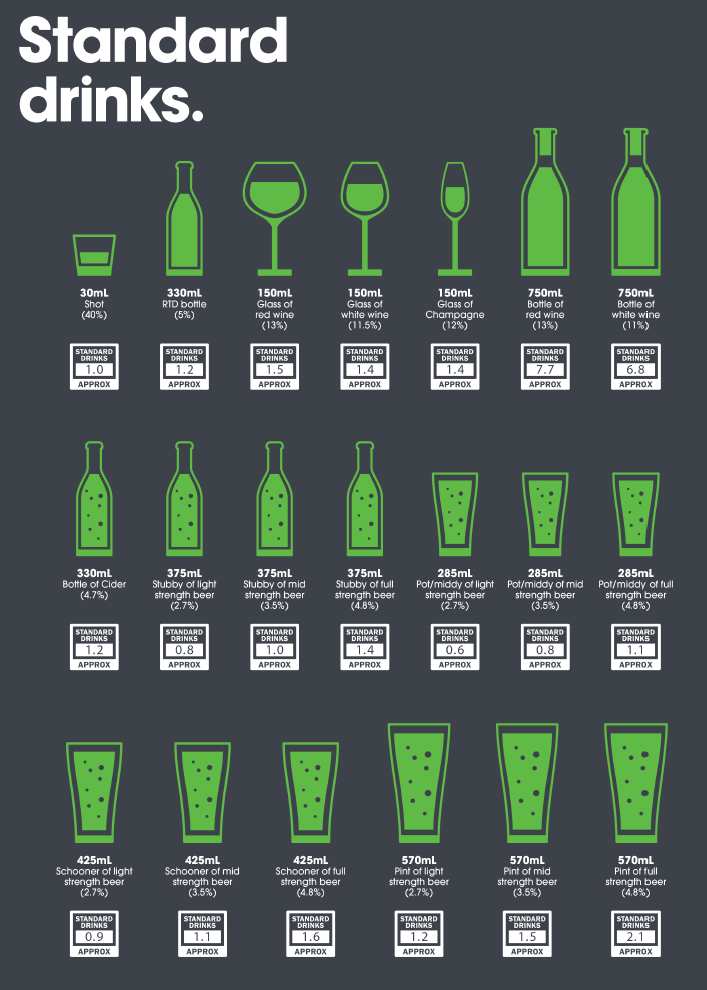
Poster from http://www.drinkwise.org.au
When are police allowed to breath test me?
In general, the police are within their powers to breath test you if they reasonably believe you have:
On top of this, the police may breath test you if they reasonably believe you have:
What information am I required to give during a random breath test?
The only information you are required to hand over is your driver’s licence, which will provide the police officer with your full name and address. If you refuse to produce your driver’s licence as requested you may be charged with disobeying or contravening a police officer’s direction. It is useful to be as cooperative as possible as if you blow a positive reading and require a local court appearance, your level of cooperation may be discussed with the Magistrate.
Can I refuse to take a breath test?
Generally speaking, no you cannot refuse to take a breath test and if you do it is considered a serious offence. A police officer can request that you take a breath test if you are driving or riding a vehicle. There are some circumstances when police are not allowed to breath test you, please refer to the other sections of this article for full details.
Providing an unsatisfactory sample, such as not counting to 10 properly, blowing lightly so enough air doesn’t make its way into the breathalyser etc. are all classed as refusal to undertake a breath test and are treated as serious offences.
What are the penalties if I refuse to take a breath test?
The penalties vary from state to state within Australia. Generally, they have a maximum fine and/or a period of imprisonment. In some cases the penalties involve driver’s licence suspension or receiving demerit points. There are also some differences depending upon whether it is the first offence or not.
In New South Wales as per the Roads Transport Act 2013, the maximum penalty for refusing to take a breath test is $1100. You licence won’t automatically be suspended however the courts have the discretion to do so if they choose.
In Queensland, as per section 80(5A) of the Transport Operations (Road Management) Act refusal to undertake a breath test will land you with a $4000 fine or up to six months imprisonment.
In South Australia, Section 47E of the Road Traffic Act 1961 (SA) it is an offence to refuse to blow into a breathalyser used for a breath analysis when directed to do so by a police officer and doing so will cost you $1600.
In Tasmania, refusing to take a breath test will land you with a $1400 fine.
The ACT has one of the harshest penalities with a $4500 fine (maximum).
In the Northern Territory, if you fail to stop when instructed to do so by a police officer for the purpose of a breath test, expect a maximum fine of $29 800 and up to 12 months imprisonment.
How many breath tests can I be requested to take?
The police officer is authorised to have you provide as many specimens of breath, saliva or blood as they consider reasonably necessary to carry out the analysis or test.
If I blow a negative reading, can a police officer request a further test?
The short answer is yes, if you undergo a breath test and the result is negative, a police officer can request that you undergo a further test if they believe you are under the influence of drugs, or has a reasonable belief that you are a learner/probationary driver, or holder of a special licence that requires a zero blood alcohol reading.
For example, in Queensland, within the Transport Operations (Road Management) Act under subsection (2) or (2A), “the police officer may require the person to provide as many specimens of breath or saliva, or both, as the police officer considers reasonably necessary to carry out the breath test, the saliva test or both.“
Can a police officer force me to the police station for a sample?
Yes. If you are requested to attend a police station to provide a sample, and you fail to do so voluntarily, a police officer “using such force as is necessary” can take you to the police station.
In Queensland, as per section 80(5A) of the Transport Operations (Road Management) Act, “if a person required by a police officer under subsection (2) or (2A) to provide at a police station or other place a specimen of breath for a breath test, or of saliva for a saliva test, by the person fails to go voluntarily to the police station or other place for that purpose, any police officer, using such force as is necessary, may take the person to the police station or, as the case may be, other place for that purpose.“
Does the police officer need to show me the breathalyser results?
No, the police officer is actually not allowed to inform you of the result of your first road-side breath test. If you fail the test, by blowing over the 0.05 limit, you will be taken to a police station, mobile drug and alcohol testing bus or hospital to perform another test with higher grade breath test equipment. If you fail the second test, the police will provide you with written evidence of the result.
LOOKING TO BUY A PERSONAL BREATHALYSER?
Check out some of our latest model best sellers.
What are the drink driving penalties if I blow a positive reading?
Difference between DUI and PCA
There is a common misconception that all drink driving charges are ‘DUI’ charges but this is in fact not the case. Most drink driving charges are prosecuted under the prescribed concentration of alcohol ‘PCA’ section of the various state Acts. In order to charge you under this section of the Act police must show that the PCA is in your system when you were driving, they do this via a breath or blood test.
Separately to PCA, Police can also charge you with driving under the Influence of Intoxicating Liquor or Drug (DUI).
Evidence for a DUI charge usually comes from a police officer who witnesses behaviour such as unsteadiness, slurring of words and the smell of liquor.
They do not need to provide evidence from a breath analysis to prove the charge, instead they must prove beyond a reasonable doubt that you were:
New South Wales
If you blow a Low range reading (between 0.05 – 0.079) your drivers licence will be immediately suspended for a period fo 24 hours. You will be required to leave your car and have someone else drive it home. If you are caught driving with the 24 hour suspension period, you will be hit with a $1400 penalty and your drivers licence will be disqualified for a period of 6 months.
If your reading is above Low range, your drivers licence will be suspended until your matter is finalised in a local court. If you are caught driving whilst service this suspension period, you will be hit with a penalty and will have your licence disqualified for a period between 2 and 5 years.
The penalties mentioned below are governed by the Road Transport Act 2013.
Automatic disqualification periods apply for drink driving offences within New South Wales.
From 20 May 2019, if a driver commits a low, special or novice range drink driving offence, NSW Police can immediately suspend the driver’s licence.
In the case of a first time offence, the driver’s licence can be suspended for 3 months and an on-the-spot fine can also be issued.
Prior to the reforms, all drivers charged with drink driving on NSW roads were required to attend court to have their penalty determined. Drivers who were charged with a low range offence did not lose their licence immediately, and were able to continue to drive until their court date.
According to rms.nsw.gov.au:
- NSW Police can now immediately suspend the licence of any driver caught drink driving on NSW roads, including lower range and first time offenders.
- In the case of a first time, low, novice or special range offence, a driver’s licence may be suspended for a period of 3 months, coupled with an on-the‐spot fine of $572 (Level 7 penalty notice – value from 1 July 2019)
- If you receive an immediate licence suspension, you are required to hand your licence to Police, and are not permitted to drive. You may need to make alternative arrangements to get home from the roadside or police station
- If you have received a penalty notice and immediate suspension for a drink‐driving offence, you can elect to have the matter determined in court and appeal your suspension
- If you have received a penalty notice or an immediate suspension for a drink driving offence, you may wish to seek legal advice before making the decision to go to court. Higher penalties and longer periods of licence disqualification can be applied by the court and a conviction may be recorded
- Significant penalties apply for driving while your licence is suspended
The following categories apply to New South Wales:
New South Wales – Drink driving penalties – 1st major offence within 5 years
[wpdatatable id=2]
Queensland
Within Queensland, if police charge you with a drink driving offence you will have to go to court. The exact length of your licence disqualification period will be up to the local magistrate, they will also decide if you will receive a fine and/or are sentenced to prison. You can use the below table as a guide of the different fines and imprisonment based on BAC levels.
You will receive an immediate licence suspension for 24 hours if your BAC is less than 0.10.
Queensland – Drink driving penalties – 1st offence
[wpdatatable id=3]
Canberra
As a general guide, if you are charged with a PCA offence, a Magistrate will make a record of your conviction and impose a fine and disqualify your licence for a set period. The Magistrate will naturally consider if this is your first offence along with the level of your BAC at the time.
The Court does have the power to dismiss the charge under Section 17 of the Crimes Sentencing Act 2005 whereby no criminal conviction will be recorded against you (and no fine or disqualification would be imposed).
Canberra – Drink driving penalties – 1st offence
[wpdatatable id=4]
Victoria
Within Victoria, Alcohol Interlock devices are utilised for most drink-driving offences. Harsher penalties for learner permit holders were introduced for blood alcohol concentration (BAC) levels from 1st October 2014.
The police also have the authority to suspend your licence immediately depending on the circumstances, for example, a learner driver who records a BAC reading of 0.7 or more.
The Victorian penalties depending on the following factors:
Victoria – Drink driving penalties – 1st offence
[wpdatatable id=5]
What is an Alcohol Interlock Device?
Alcohol Interlock devices are attached to the ignition of vehicle or motorcycle and require the driver/rider to perform a breath test before being able to start the ignition. If the breath test provides a negative response for alcohol, the vehicle or motorcycle will start. If a positive response is received, the vehicle or motorcycle won’t be able to start. The devices also have a feature whereby random breath tests must be passed during a vehicle/motorbike trip.
Who is required to use an alcohol interlock device?
This differs from state to state.
In New South Wales, unless an exemption order is granted, all repeat drink drivers and anyone returning a reading of mid range or above will require an interlock. More info can be found here.
It is a similar situation in Queensland, if you are convicted of a serious drink driving or traffic offence, your licence will be disqualified and you will be required to have an Alcohol Interlock device fitted for a period of 12 months after you receive your licence back. You will only be able to drive a vehicle which you have prior nominated as your ‘nominated vehicle’. If you have been charged with high-range drink driving, failure to provide a specimen of blood or breath, dangerous driving whilst intoxicated or repeat drink driving offences which resulted in your licence being disqualified, your will be required to undertake the Alcohol Interlock program when you receive your licence back.
Within Victoria, the Alcohol Interlock program was expanded on 1st October 2014 to include mandatory use of the devices for most drink-driving offences. Please refer to the above table on Victoria Drink Driving Offence Penalties for full details. Most drink driving offences in Victoria now require you to use a mandatory alcohol interlock device for a period of at least six months.
In Canberra, if you are convicted of high range drink driving after recording a BAC of 0.15 or higher, or if you have been charged twice previously with drink driving offences in the pat 5 years, you will be required to utilise an alcohol interlock device after you receive your licence back when your disqualification period is over.
When I get pulled over, I am going to quickly swap seats with a passenger so I don’t get caught.
That is a very silly thing to do. Firstly, if you feel a passenger is under the limit, why aren’t they driving instead of you in the first place? Secondly, the police can request a breath test from a passenger of a vehicle who they reasonably believe was the actual driver of the vehicle.
If I am just sitting in my car on the side of the road, can police breath test me?
A police officer can ask you to complete a breath test if you were driving a vehicle on a ‘road related area’ or a road, or if you were sitting in the driver’s seat with the ignition turned on. If you were sitting in the passenger seat instructing a learner/provisional licence holder who was driving then you can be asked to complete a breath test as well.
Can a police officer breath test me if I am at hospital receiving treatment?
Yes, police are within their rights to request a breath test from you if you are at hospital and have been recently driving/riding a vehicle.
The police may request for the a breath, urine or blood test to be collected by a doctor or nurse or “qualified assistant directed by a doctor or nurse”. The health care professional are within their rights to take a sample even without your consent.
When are police not allowed to breath test me?
The answer to this question all depends on what state you live in. For New South Wales, you have to have been driving a vehicle in the past two hours in order for a police officer to be allowed to request a breath test. This same law applies to Queensland as well. If you reside in Victoria it is a little different, a police officer can’t request a breath test from you if you have not been driving in the past three hours. For the Northern Territory and Western Australia the period of time is four hours.
Within all states of Australia, if you are at home, a police officer is not allowed to request that you undergo a breath test analysis.
There are laws which allow a breath test to be refused for medical reasons but if a doctor states that completing the breath test won’t affect the health of the individual then the test is allowed to be conducted. In summary, if you are going to refuse a breath test for medical reasons you should already have a certificate “in the approved form” from a doctor stating that because of a stated illness or disability, you are incapable of providing a breath or saliva specimen.
Within Queensland, this is explained as, “immediately after the requirement (for a breath test) is made, the person produces to the police officer a certificate in the approved form from a doctor stating that (i) because of a stated illness or disability, the person is incapable of providing a specimen of breath, a specimen of saliva or both a specimen of breath and of saliva; or (ii) the provision of a specimen of breath, a specimen of saliva or both a specimen of breath and of saliva could adversely affect the person’s health; or the person satisfies the justices that the requisition to provide a specimen of breath, a specimen of saliva or both a specimen of breath and of saliva was not lawfully made or that the person was, by reason of the events that occurred, incapable of providing the specimen as required or that there was some other reason of a substantial character for the person’s failure to provide the specimen as required other than a desire to avoid providing information that might be used in evidence.”
Now, in saying all of that, if you do have a medical certificate that prevents you from needing to complete a breath test, the police officer will require a blood test from you instead, for example as per the Queensland Transport Operations (Road Management) Act, section 8E ‘Specimen of blood must be required if doctor’s certificate produced’.
Can I challenge my breath test result?
Yes there are grounds for you to challenge your positive reading. In saying that, most of the grounds for challenges require expert testimony.
For example, within Victoria, the Road Safety Act Section 49 states:
I’ve heard I can apply for a Work Licence, what is that?
There is a portion of the community which rely on their drivers licence in order to earn an income. Examples may be bus drivers, taxi drivers, truck drivers, courier drivers, delivery drivers etc. Many others need their licence in order to be able to drive to work or to the nearest train station to catch a train to work.
If you are convicted of drink driving there is a possibility you can apply for a work licence and continue to drive for strictly work-related purposes only. The work licence basically allows those that are suspended from driving to continue to drive to work so they can earn an income. Obviously a work licence is rather important to someone who could otherwise lose their job and/or source of income.
Applying for a work licence is not easy and the approval process is quite strict. The application process is limited to one only so if you fail on your first application you cannot reapply so it is important to get it right the first time.
Drive to Work licences are not available in Victoria
What are the different legislations in each state?
LOOKING TO BUY A PERSONAL BREATHALYSER?
Check out some of our latest model best sellers.

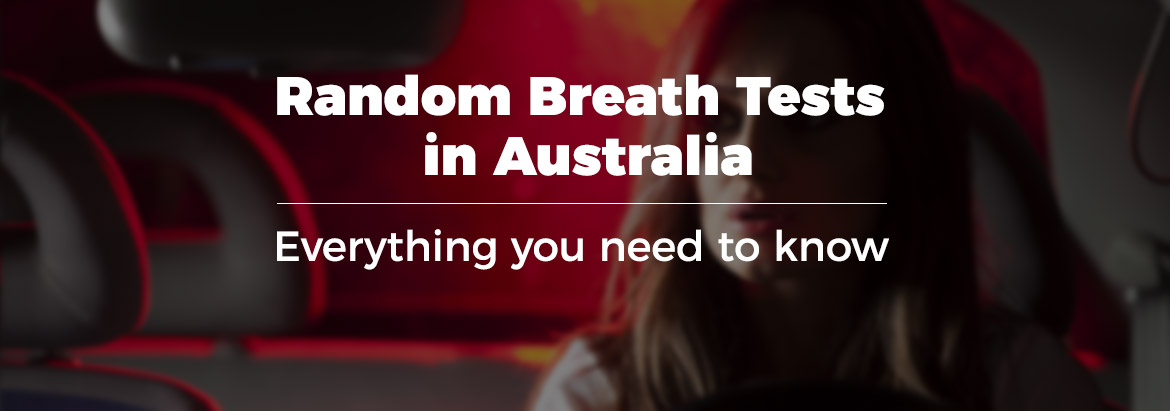
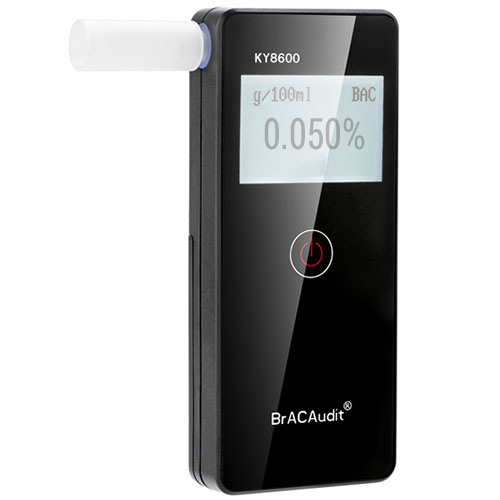
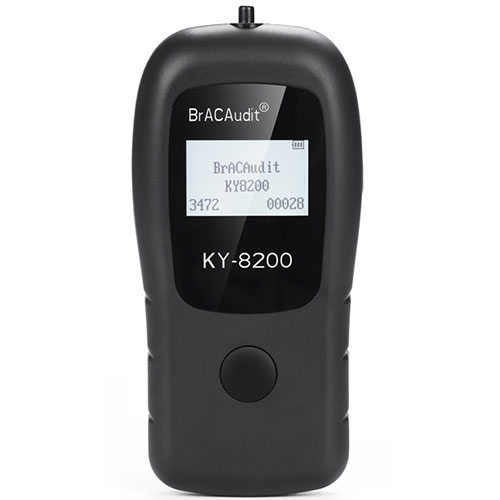
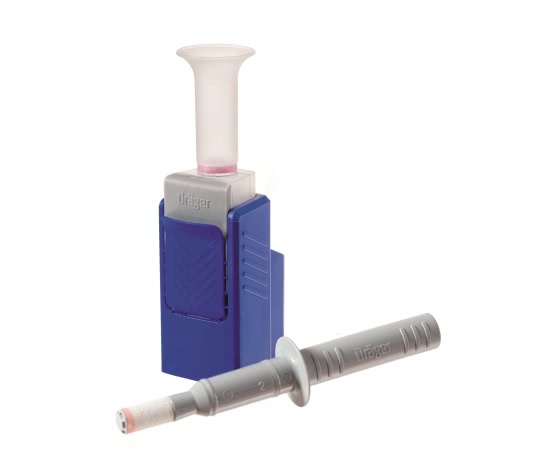
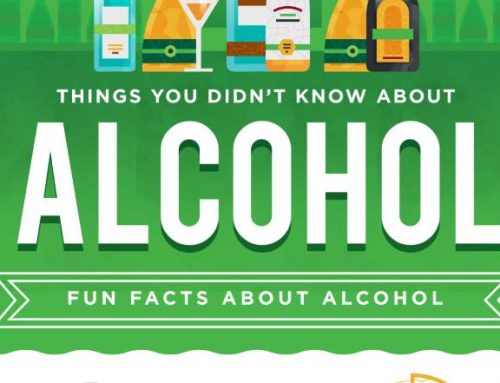
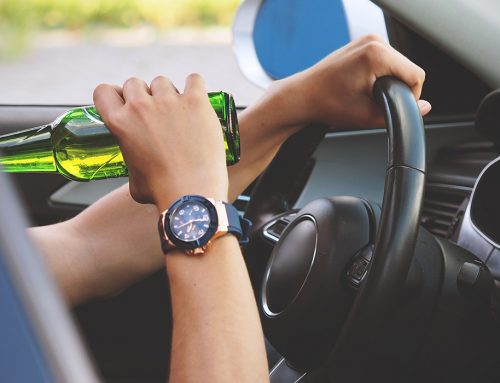
Thanks for your informative article. I’m a physician researching the potential effects of anemia on breathalyser or BAC levels, as well as the potential effects of opiods on these measurements.
Would you be able to assist me with some information or source?
thanks,
Mark Friedman, MD
Hi, My partner & I were recently pulled into a RBT station and my partner was breathalyzed and she was all clear then the officer came around to the passenger side which is where I was and told me to blow into the machine and I was clear but then asked for my licence and did a check to which it showed that I was unlicensed which I know of but then accused me of driving and that he had seen me swap seats and has given me a notice to appear in court for unlicensed driving. I was not driving to begin because I am unlicensed and have been for the past 1yr 7mths. What can I do to fight this & win? Because it is all one big joke and it’s false.